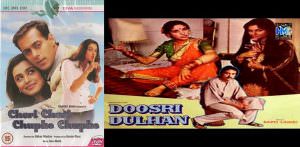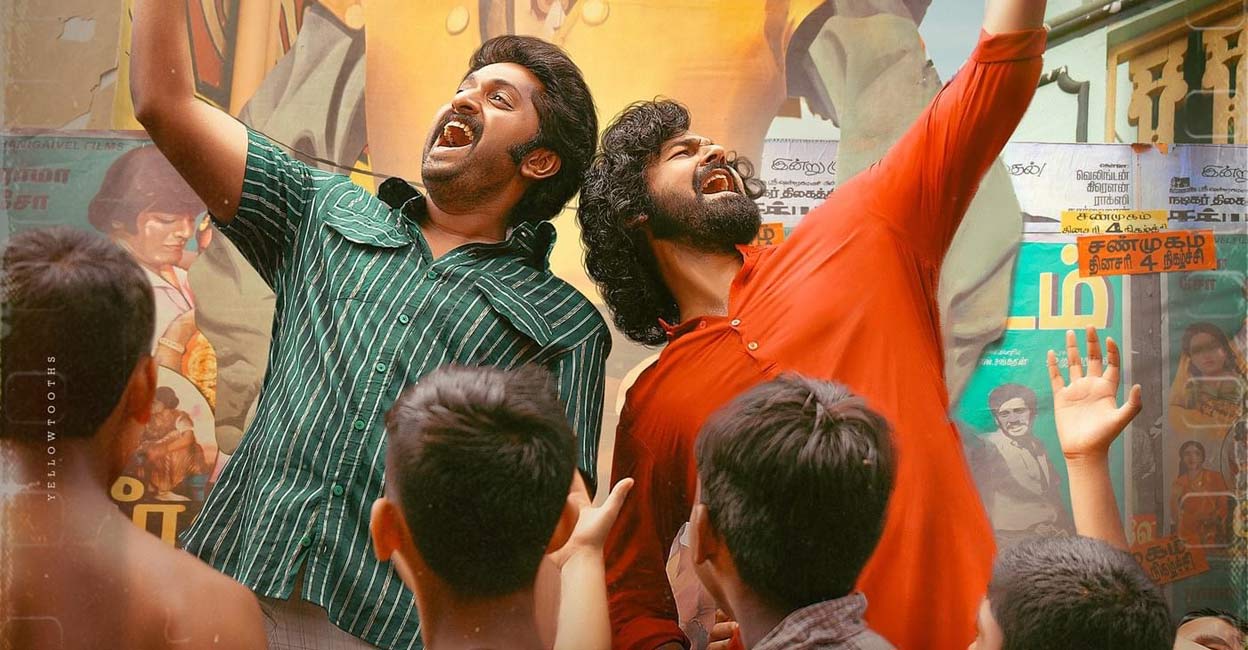Surrogacy is a process where a woman carries a baby for a couple or an individual who is unable to do so. It has became a very controversial topic in the recent past after the new Surrogacy Bill in 2016. The Bill bans commercial surrogacy and makes surrogacy accessible only to heterosexual married couples. Further, surrogacy can be availed only once. How has surrogacy been portrayed in mainstream Hindi cinema?
Surrogacy made its entry in 1983 in the movie called Doosri Dulhan (starring Sharmila Tagore, Victor Banerjee and Shabana Azmi). Later, there were two more movies on surrogacy – Chori Chori Chupke Chupke in 2001 (starring Salman Khan, Preity Zinta and Rani Mukherjee) and Filhaal in 2002 (starring Sushmita Sen, Tabu, Palash Sen and Sanjay Suri). These movies do not do justice to nuanced topic of surrogacy and succeed in perpetuating certain harmful assumptions regarding surrogacy.
Also, due to the stereotypical patriarchal society, we do not have many mainstream Hindi movies on surrogacy. Perhaps a greater representation of surrogacy in popular media will eventually lead to a more sensitive and accurate portrayal of it!

Chori Chori Chupke Chupke & Doosri Dulhan (Posters)
Doosri Dulhan and Chori Chori Chupke Chupke both have plot lines depicting commercial surrogacy, now banned in the Surrogacy Bill. In both movies, the childless couple choose sex-workers (Shabana Azmi in Doosri Dulhan and Priety Zinta in Chori Chori Chupke Chupke) to carry their children for them.
Choosing sex workers as surrogate mothers works on the “good woman” versus “bad woman” principle. The good mother is often associated with qualities like care, selflessness, nurturance, sacrifice and divinity. Sex workers, who use their bodies to earn their livelihood, are invariably exempt from this category – always falling under the “bad woman” tag. According to Indian societal norms, such women will be incapable of having emotions and qualities of “good mother”. Therefore, they are seen as only capable of selling their womb for money, or rather, selling their “motherhood for money”.
The surrogate mothers are seen to transform from “bad women” into conventional “good women”.
The “good mother” versus “bad mother” categorization makes no sense as commercial surrogacy is more a profession and less a personal relationship and there’s contract of which all the members involved in the surrogacy process is aware of.
The phenomenon of commercial surrogacy is therefore tinted with moral judgements, where sex work, which is already vilified, is conflated with surrogacy over a loose and inaccurate basis, i.e., the commodification of body via morality – a stance that even some scholars take. Both surrogacy and sex work are seen as exploitative, which is untrue because there are women who undertake both professions out of choice and free will.
This stance that views only the exploitative nature of surrogacy also says that women from low-income backgrounds are more prone to be surrogate mothers or they are more vulnerable to surrogacy, which is also untrue, because women from well-off families do also choose to be surrogate mothers. Both Chori Chori Chupke Chupke and Doosri Dulhan reinforce this harmful generalization that only women that are stuck in financial crisis undertake surrogacy, thus taking away the choice and agency of the act.

Filhaal Poster
After these two movies, Filhaal was another movie dealing with surrogacy. The movie revolves around two friends, Sia (an unmarried, career-oriented woman) and Rewa (married, family-oriented woman). When Rewa (played by Tabu) goes through a miscarriage and is unable to be conceive again, Sia (played by Sushmita Sen) helps her and volunteers to be a surrogate mother for Rewa’s child. This plot line, unlike the previous ones, follows the model of altruistic surrogacy.
This movie, too, was not very successful in depicting the real essence of surrogacy. In the patriarchal structure, a career-oriented woman is often thought to be a “bad mother” as she is more inclined towards her career than family while “good mothers” are often depicted as homely and family oriented.
surrogacy and motherhood are two different things.
In this movie, Sia becomes a surrogate mother for Rewa. She is shown to believe that she is incapable of being a good mother due to her career, and so it is a better decision for Tabu to be a mother than her. Her decision to become a surrogate mother should have been portrayed as an independent one, irrespective of the morality of “good mother”.
There are some similarities in all the three movies. The surrogate mothers are seen to transform into women living lives of conventional ‘good women’. In Doosri Dulhan and Chori Chori Chupke Chupke, both Priety Zinta and Shabana Azmi leave sex work and start making livelihoods through other so-called ‘respectable jobs’. In Filhaal, Sushmita Sen opts for a settled life. But these are problematic because motherhood can’t change anyone’s personal choice and on top of that, surrogacy and motherhood are two different things.
Very evidently in the three movies, the woman who is considered to be a “bad mother” is seen by herself as “good mother” when she gives away her child as she is sacrificing her motherhood, in which sacrifice is seen as an essential trait of motherhood.
The contemporary arguments around surrogacy pivot between “commodified motherhood” and “glorification of motherhood”, both of which view surrogacy in problematic ways. Commodified motherhood is the view that the woman is selling her motherhood, which consequently makes her a bad mother. Glorified motherhood reveres the surrogate mother because she’s seen to be sacrificing her motherhood for someone else.
Neither argument is valid because motherhood and surrogacy are two different things. Surrogacy is a choice of just carrying the baby and motherhood deals with raising the baby into complete being.
Another thing that these movies bring to mind is the question of whether surrogacy is a choice or exploitation. Initiated by choice, all the surrogate mothers in the movies felt uncomfortable when the time of delivery and separation from the child came closer. In Doosri Dulhan and Chori Chori Chupke Chupke, there was a evident feeling of exploitation among the surrogate mothers as they felt that their womb was being rented for money. In Filhaal, I am unsure if it was a feeling of exploitation or uncertainity that the surrogate mother was depicted as going through.
This feeling of discomfort or exploitation further mischaracterises surrogate mothers, who make a conscious choice and know that they are bearing the child for someone else and they are within a contract.
morality needs to be detached from surrogacy.
Another component that I felt was common in all the three movies was the feeling of insecurity among the wives from their husband and the surrogate mothers, provoking an unnecessary element of competitiveness. This too is most likely to be absent in the real scenario because for commercial surrogacy, the surrogate mothers stay in surrogacy homes or clinics (unlike the movie like Doosri Dulhan and Chori Chori Chupke Chupke where the surrogate mothers stay with the couple).
Also, the wives will not be insecure as they along with their husbands make a conscious choice to opt for surrogacy. Such portrayal of insecure wives again reinforces the prevalent idea of women being ’emotional, illogical and jealous beings’, which is untrue and a harmful stereotype.
As an end note, I would like to say that morality needs to be detached from surrogacy. It should also be kept in mind that motherhood and surrogacy are two different concepts. The surrogate mother’s right over her body and decision must be recognized and respected. Merely viewing surrogacy as exploitative removes this element of choice. Also, in a patriarchal society like India where a married couple has to have kids and having no child seems to be crime, surrogacy is a blessing for childless couples. So rather than banning surrogacy, steps must be taken on changing the way that surrogacy is viewed into a healthy and mutually beneficial relationship.
Also Read: A Critical Analysis Of The Surrogacy Regulation Bill 2016





The parallels between the surrogacy industry exploiting women in poor countries and The Handmaid’s tale are disturbing though.
This is a very confused piece.
I don’t think you understand the first think about exploitation – definitely not at the socio – economic level.
Surrogacy is most definitely not a ‘profession’.
Please go and inform yourself before opining.